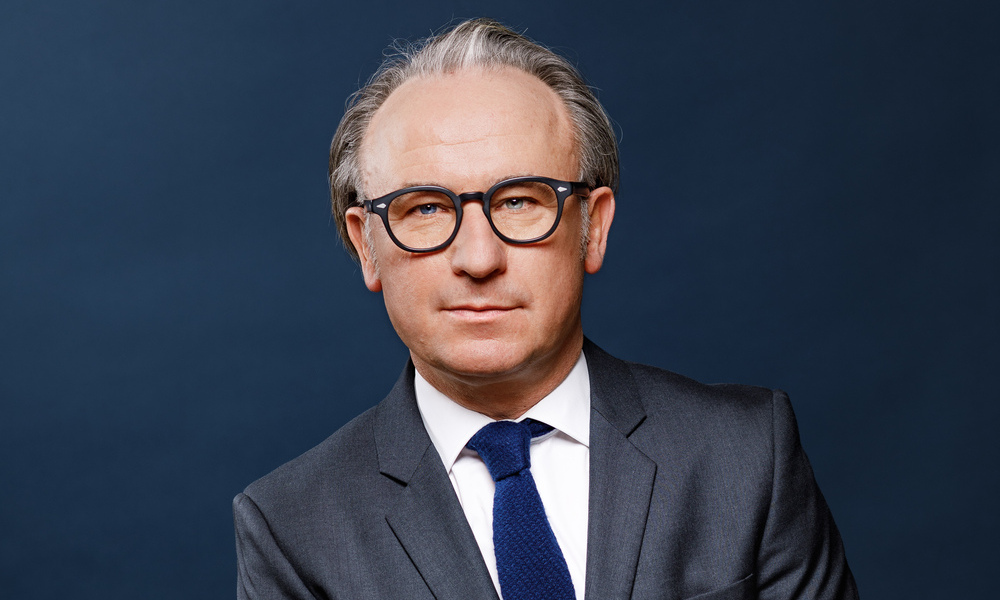Benoist Lombard: “We don’t provide the same advice to an heir as we do to an entrepreneur”

Wealth management is not about numbers—it’s about people. That’s the message from Benoist Lombard, Deputy CEO of the Crystal Group and Chairman of Maison Laplace. To practice it is to embrace society in all its complexity, and to remain agile amid constant change.
Do the current global crises (geopolitical, climate, technological, etc.) raise questions about the definition of asset management?
I’ve seen one crisis after another since the 90s. The global crash of 1994, the crises in Asia 1997, the collapse of the dot-com bubble in 1999-2000, the financial crisis of 2008, the sovereign debt crisis of 2010, COVID … the list goes on.
Managing crises is an integral part of the work of an asset manager. The impact of crises should be integrated into the way objectives are defined. As soon as we define a management horizon, we define appetite for risk. In other words, the level of global risk that someone is prepared to take to meet their objectives. Evolving frameworks are defined in an economic environment which is constantly shifting. The first error is often to change that framework along the way.
The financial world or the property world cannot be considered on the same temporal scale as a crisis. It would be meaningless to do so. We have to continue to project beyond the temporary event, and define, with the client, the key milestones towards their objectives. If these objectives are not formalised, we will not be in a position to deliver the appropriate advice.
Delivering the appropriate advice also means adapting to each client …
Absolutely. An astute asset manager acts much like a family doctor. They need to have a perfect understanding of not only the subject, but the family, cultural, and social environment of each client. We don’t provide the same advice to an heir as we do to an entrepreneur who has built an empire from scratch. There is a need for a lot of empathy and listening. The psychological aspect is indispensable if you really want to identify someone’s needs.
One of your specialities at Laplace is the “family office” and you have a dedicated entity, Maison Laplace. What makes it special?
Maison Laplace clients have substantial financial resources, but their demographics have changed in recent years. When I was growing up in Brittany, the most beautiful houses belonged to doctors, lawyers, pharmacists and dentists. Now, they belong to business owners. But the biggest change is generational. The children of these wealthy individuals, regardless of their academic qualifications, lack the training to manage their assets. Of course, the members of this NextGen do not have the same background. When 800 cousins in a large French family got together, the older ones realised that a significant minority of them didn’t have the background needed to understand the issues relating to their situation. We therefore created a Family Office Academy for them, to help educate them in the basics of our activities. We are going to train them in French and international legal and tax issues and financial management, as well as the social responsibilities incumbent on them, the issue of vulnerability and so on. It is these young people who will be driving the economy in the future.
You mention vulnerable people. They already represent a non-negligible proportion of your clientèle, and mental health was declared an issue of great national importance in France in 2025. Have you established any particular initiatives to support these clients?
Yes, we have an entire department dedicated to this issue, and the Laplace group is working with the Fondation Falret which helps people suffering from mental health issues. More and more people are affected by mental health issues to varying degrees. Issues extend from schizophrenia and bipolarity to burn-out and professional exhaustion. Providing these individuals with better advice is a two-fold process.
It starts with educating our advisers. They are being trained to better take into account the needs of this clientèle and to address this vulnerability. Take the example of “advance directives”. We don’t talk enough about this, despite the fact that advance directives enable someone to appoint, in advance, one or more people who can represent them should they no longer be capable of managing their interests.
It also involves raising awareness among judges of asset management, to ensure that vulnerable people can retain sufficient assets to cover their long-term needs. Obviously, we are talking about people who have sufficient capital to generate a supplemental income. And this supplemental income is not only based on buying funds in euros, holding monetary investment funds, or collective financial investments in the form of an SCPI. Diversification is important, even if it leads to a lower risk for an investor with a ten-year horizon and a risk profile of 4 or 5. In this case, we would clearly lean towards a more prudent approach. It also enables us to explain to the judge that, if I hold assets worth 100 and need 2 in revenue, then by finding an investment at 3% or 4%, there is a proportion of my capital that I will never consume. And the question becomes: could these assets, this long-term “bundle”, be invested somewhere other than in a simple guaranteed fund?
Do you ever realised that a long-term client is becoming vulnerable and had to take action?
Yes, but only ever on a case-by-case basis. And that is why it is so important to understand the family environment. This is a delicate situation, because we do not have the right to dictate how a responsible adult spends their money. For example, I had a client who, it emerged, was addicted to drugs. Addressing this may involve informal discussions with the rest of the family. “He didn’t appear to be in good shape – ah, you thought so too?” We can advise them and point them to specialised centres, but the rule is that each individual does what they want with their own assets.
As people’s lives are getting longer, you are likely to face this problem more and more often…
That’s why our role is to look to the long-term with our clients and prepare for their retirement. I have been known to warn clients by saying: “Be careful. If you continue at this rate, you will have nothing left when you are 72, and your life expectancy is 86.” To compensate for this, you often have to make trade-offs. Every situation is unique.
In the era of artificial intelligence (AI), can asset managers continue to be “family doctors” in the way you have described?
Yes, and this is essential. AI should not compensate for an adviser’s shortcomings or replace them. It should make us better advisers. It can be very useful in certain areas, such as legal and tax aspects, for example, but it is of no use in many other areas. Ask ChatGPT, Mistral, or CoPilot to identify the best asset allocation for a client who wants to dynamically manage their affairs, and you will be sorely disappointed. In these areas, AI is not yet able to engage in prospective planning, which involves not only predicting, but also exploring and imagining. And despite the power of AI, it remains reliant on the available data, the framework imposed on it by humans, and the complexity of reality. We need human intelligence.



